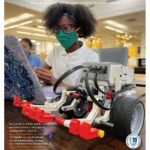Education in vietnam is characterized by a strong emphasis on academic achievement and a competitive schooling system. Vietnamese students typically face a rigorous curriculum and intense pressure to excel academically.
This focus on education is reflected in the country’s high literacy rates and strong performance in international assessments. Despite these positive aspects, the vietnamese education system also faces challenges such as overcrowded classrooms, a lack of resources, and disparities in access to quality education between urban and rural areas.
Efforts are being made to address these issues and improve the overall quality of education in vietnam.

Credit: www.c-span.org
The Rise Of Edtech In Vietnam
The adoption of edtech in vietnam’s education system has had a significant impact. Incorporating technology into the classroom has allowed for more interactive and engaging learning experiences. Students can access a wealth of resources and educational materials online, enhancing their understanding and knowledge.
Edtech also promotes collaboration and communication among students and teachers through virtual platforms. This shift has transformed traditional teaching methods and made education more accessible to a wider audience. One of the major advantages of edtech is its ability to personalize learning based on individual student needs, enabling a tailored and flexible approach.
It has also been instrumental in bridging the gap between rural and urban areas by providing equal access to quality education. The rise of edtech in vietnam has truly revolutionized the education landscape, ensuring that students are equipped with the necessary skills to thrive in the modern world.
Transforming Classroom Learning
The education landscape in vietnam is undergoing a significant shift, with traditional classroom learning being transformed into interactive platforms. These platforms aim to engage students in a more dynamic and immersive way. One such approach is the flipped classroom, which reverses the traditional model of teaching.
Instead of students passively receiving information in class and applying it at home, they are introduced to new concepts through online resources before the lesson. In the classroom, teachers then facilitate discussions, answer questions, and provide hands-on activities. This approach encourages active participation, critical thinking, and collaboration among students.
By leveraging interactive learning platforms and embracing the flipped classroom, vietnam is fostering a more engaging and effective educational experience.
Personalized Learning For Students
Education vietnamtimes offers personalized learning for students, catering to their individual needs and goals. Through customized learning paths, students can navigate their educational journey with flexibility and relevance. By leveraging adaptive learning technologies, students can embrace a tailored approach that adapts to their unique learning styles and preferences.
These technologies analyze student performance and provide real-time feedback, enabling educators to identify areas of growth and improvement. With personalized learning, students can engage in self-paced learning, explore diverse learning resources, and participate in interactive activities that enhance comprehension and retention.
This student-centric approach fosters a deeper understanding of concepts and promotes lifelong learning. Education vietnamtimes empowers students to take ownership of their educational experiences, enabling them to thrive and succeed in an ever-evolving global landscape.
Conclusion
The education system in vietnam is undergoing significant progress and reforms in order to meet the demands of a rapidly changing world. The government has invested heavily in improving access to education and enhancing the quality of teaching and learning.
Students are benefiting from a more comprehensive curriculum that includes critical thinking, creativity, and problem-solving skills. Technology is being integrated into classrooms, opening up new avenues for interactive learning. Furthermore, collaboration between the government, schools, and communities has resulted in a stronger support system for students.
While challenges remain, such as the need for more qualified teachers and the digital divide in remote areas, the commitment to education is evident. The future of education in vietnam looks promising, with a focus on equipping students with the necessary skills and knowledge to thrive in the global landscape.














